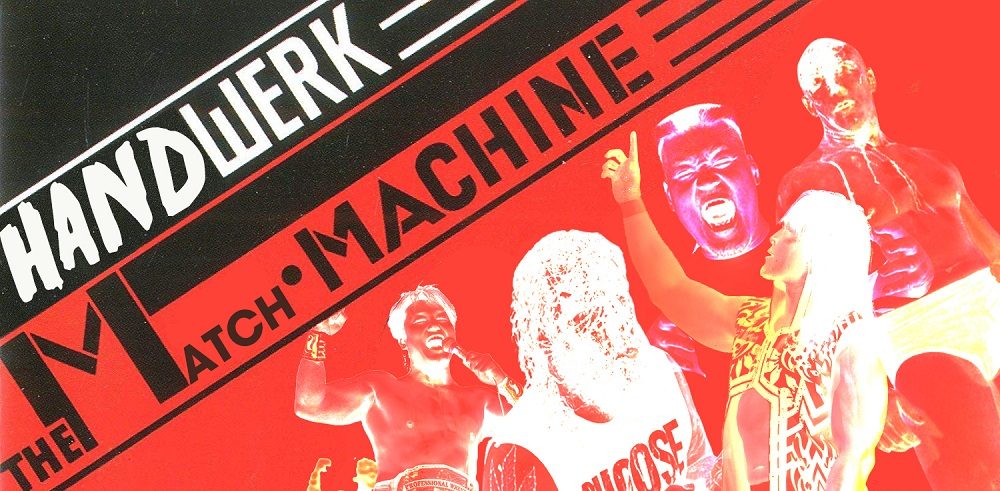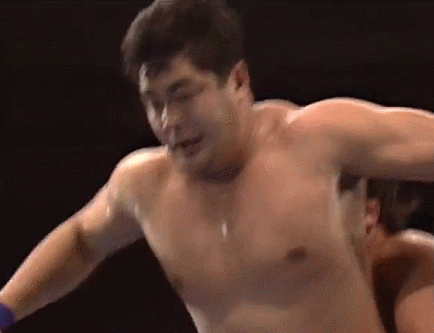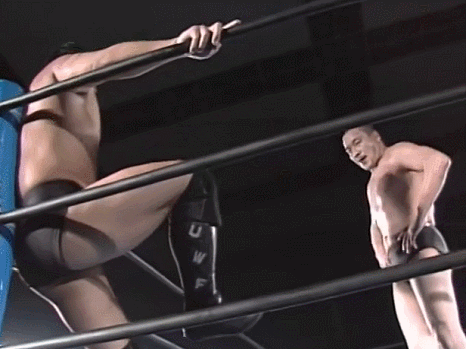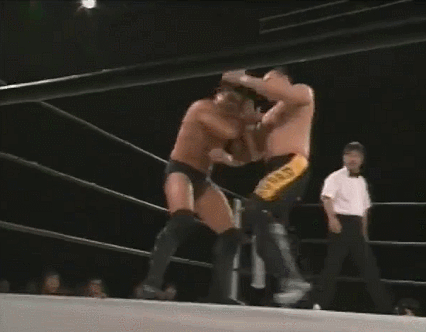In a rubber match, Yoshiaki Fujiwara once again seeks to find exactly how great a match can be when all it has going for it is one (1) stellar individual performance.
Fujiwara is, again, out of this world great.
There’s so many things a wrestler can do to add to a match in one way or another, and Fujiwara seems like he does every single one of them in this match. If you want cool offense, within reason (this is a shoot-style match from 1990, I would like to believe anyone seeing this knows where the guardrails are), your nasty holds and gross strike, Fujiwara more than has you covered. This match is home to more of those than either other match between them, and that is primarily on the old man. He delivers those nasty body shot combinations that no other wrestler ever has totally managed to match, but he also throws so many of those short and perfect headbutts, each one different and also imbibed with some amounts of Fujiwara’s natural meanness, that Takada begins putting one hand forward onto Fujiwara’s forehead when locking up to try and avoid it.
He’s just as great on the other end too, not just in how he goes down or sells Takada’s major shots in the moment, but in those moments after. Because as is so often the case for the old man, it’s probably even more about the pauses and quiet moments than it is the ones full of sound and action. It’s yet another outing full of these wonderful Fujiwara looks, which like the headbutts, feel just a little different every time, depending on whether or not Fujiwara is reacting to something he’s done, Takada’s done, or best of all, when he reacts — in those moments where Takada backs away at the slightest motion or puts a hand out to block his head — to something Takada’s not doing.
Of course, the biggest problem here is also everything else Takada isn’t doing.
For all Fujiwara offers up, there’s very little coming in return save for those moments of trepidation, which also don’t amount to too much. This absolutely is not to say he’s bad, because that would be a lie. His strikes land well, those early moments are interesting even if they don’t last, and there’s not much he does that’s upsetting. The latter is the other side of the coin, yet again, to how there’s also nothing he brings to the proceedings in terms of flourish, style, any one exceptional area of performance, or feeling. He is a blank slate rather than a blank canvas, something Fujiwara works around rather than being able to really put anything on, and while the Fujiwara Show is once again unbelievable, there’s only so far that this episode can reach.
In his defense, Takada is secretly something of a narrative guy, and the match also doesn’t help them too much either. Not that this is an excuse for performance, but the forward momentum that’s underneath all his great UWF matches simply isn’t here to help this time.
This essentially works as a retread of their match from exactly a year earlier, only now with a different strike to knock Fujiwara down for a second. It’s a knee to the head, a strike with more power and dignity to it rather than repeatedly kicking his legs out, you can see that as progress for Takada if you’d like, but it doesn’t quite feel that way. Fujiwara again gets up right after, it’s treated less like the real victory Fujiwara’s given to others, and again like another rules based Jim Harden Insurance Fraud Hoops style win, meaning that very little’s actually happened here.
It’s not the best, and on the third shot at this, it’s probably just not a match up that’s going to be more than it is here, or was in the past, a showcase for the immense skill of half of the match, and the home to one of those singular performances, but in a setting and against someone not suited to make the most of it.
Still, given three tries at this, although the first offered a better version of the same quasi-denial at the end and second offered the greatest joy (Takada losing), this one crafted more about stand up fighting and with less room for the kid to fuck around where he’s far less comfortable than on his feet, if nothing else and aside from being yet another Fujiwara singular performance masterclass, feels like the fullest realization of the match on a purely mechanical level.
Given the difficulties of Takada with most other things, that seems good enough.



